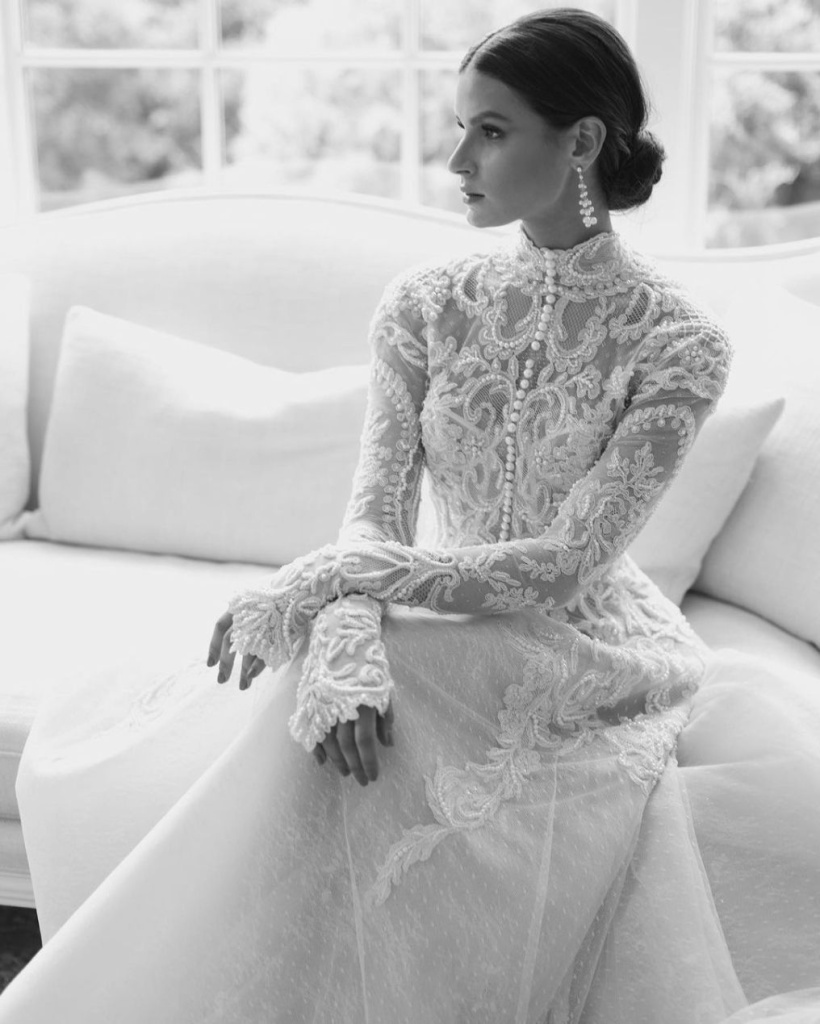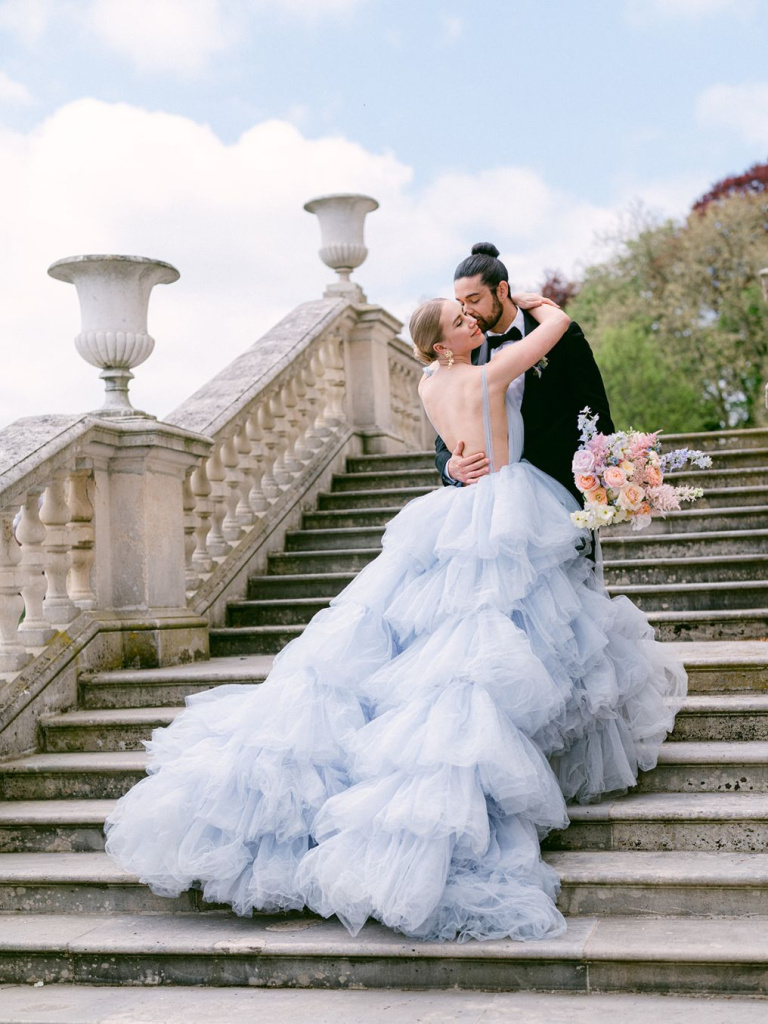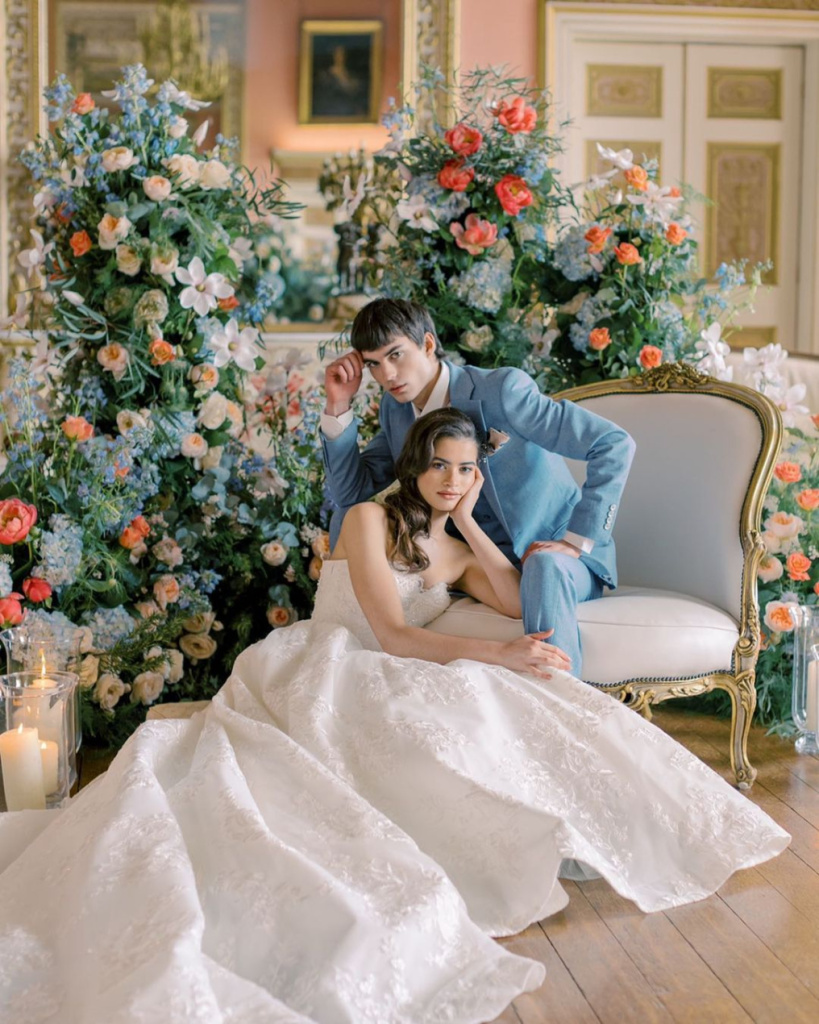Mrs vs Ms vs Miss: Navigating the Nuanced Meanings of Women's Titles
- Author: Natali Grace Levine
- Reading time: 5 min 8 sec
- Publication date: 03/27/2024
- Updated: 01/21/2025
Let us take a moment to reflect on something we often take for granted - the simple honorifics used to address women. The subtle distinctions between Ms, Miss, Mrs, or Mx speak volumes about our society and selves. These brief titles have a profound influence; their deceptively minor presence on a wedding invitation or business card shapes first impressions and sets the tone for future interactions. Their definitions morph with the changing tides of culture, acting as barometers for progress.
Opinions on their proper use run the gamut from strict adherence to tradition to pioneering new inclusive conventions. Each woman relates to these monikers differently, her choice weaving threads of personal values and public persona.
As new alternatives emerge that transcend the binary, it is time to re-examine these nuances with fresh eyes. When thoughtfully selected, they allow us to honor identities with dignity and respect. Let us dig deeper into the meaning imbued in a mere two letters, and the significance this holds for us both individually and collectively. For within these humble honorifics lies a microcosm of society’s evolution. In exploring their multilayered connotations, we gain inspiration to shape language and culture towards emancipation and empathy.

What's the difference between Ms, Mrs, Miss, and Mx?

The subtle differences between Ms, Mrs, Miss, and Mx not only reflect societal norms but also reveal evolving attitudes towards women's identity and marital status. Understanding the distinct meanings and connotations of 'Ms or Mrs' is crucial in contemporary discourse.
Miss
The title Miss has a long history of denoting an unmarried woman. Up until the 1950s, Miss was the standard title used for women regardless of age, unless and until they got married. The use of Miss implied that a woman was single and eligible for marriage. It also suggested she was likely young, as older unmarried women were considered anomalous.
Today, Miss remains the conventional title for a girl or young unmarried woman. However, it has fallen out of favor with some women who consider it outdated or feel it unduly highlights their unmarried status.
Mrs
Mrs stands for a shortening of the word mistress, the female counterpart to mister. It thus implies a married woman or wife. Mrs followed the tradition of a woman taking her husband's last name after marriage.
Some women today choose not to change their name or otherwise identify with Mrs upon marriage. They may prefer Ms to maintain their identity. However, Mrs remains a widely used title for married women who adopt their spouse's surname.

Ms
Ms emerged as an alternative to Miss and Mrs in the 1950s. The goal was to provide a title that did not indicate marital status. Many advocated for Ms as a neutral, equitable option in an era focused on women's rights and egalitarian ideals.
While some associate Ms with divorced women, it can apply regardless of marital history. The key distinction between Miss and Mrs is that it does not disclose marital status. Ms remains widely used by unmarried and married women alike who do not wish to be defined by their spousal relationship.
Mx
Mx is a recent gender-neutral title option that does not specify gender or marital status. It enables non-binary, transgender, and genderqueer individuals to choose a title that aligns with their identity.
Mx gained visibility in the 1960s alongside changing attitudes on gender. Some use it as a shortening of "mix" to denote a combination or fluidity of genders. While uptake was initially slow, Mx is gaining ground as a more inclusive choice.
Mrs. Vs Ms. Vs Miss. Vs Mx. on Wedding Invitations

Choosing the appropriate title for female guests on wedding invitations requires thoughtfulness and discretion. The bride and groom should consider both tradition and changing preferences.
Miss
Miss is traditionally used for unmarried girls and young women under 18 years old. It clearly denotes their youthful and single status. However, adult unmarried women increasingly prefer Ms, as Miss seems to highlight their unwed status. Exceptions may be made for very young adult women still living at home, who can be addressed as Miss upon their parents' request. If in doubt, discretely ask the guest or parents the preferred title for young women under 25.
Ms
Ms is widely used for adult women regardless of marital status. It does not disclose any personal information. It is a safe default option in most cases, especially for guests over 25 years old. Recently divorced, widowed or single women often appreciate Ms on invites rather than revealing their marital status. Women who have kept their surname after marriage may also prefer Ms for consistency. If you know guests socially, you may have a sense of their title preferences. When in doubt, Ms avoids assumptions.

Mrs
Traditionally, married women who take their husband's surname use Mrs. Newly married guests may expect and strongly prefer Mrs. to celebrate their name change. However, preferences evolve. Some married women opt back to Ms eventually, as Mrs seems limiting. Discreetly confirm any name changes with the guest or family to ensure the correct use of Mrs. Longer married or older guests may have shifted back to Ms. Do not assume Mrs. always applies.
Mx
Mx has emerged as a gender-neutral option for non-binary or transgender guests. If unsure of a guest's gender identity or preferences, politely inquire with them or their family. Using Mx signals openness and progressivism. But always defer to each individual's wishes. Clarify title usage respectfully and privately to avoid assumptions.

The Implications of Your Title Choice

The title we use for ourselves and request from others carries meaning. While seemingly innocuous, these honorifics reveal much about our society and personal choices.
Some implications to consider when deciding on a title:
- Mrs indicates marital status - Using Mrs may denote that marital status is an important part of a woman's identity. Some find Ms more equitable.
- Ms prioritizes privacy - Choosing Ms allows a woman to keep her marital status private if she wishes.
- Honorifics affect perceptions - Studies show honorifics like Dr. elicit greater perceptions of competence and education.
- Mrs reinforces gender roles - Since men do not change title upon marriage, Mrs may reinforce traditional gender roles.
- Mx challenges assumptions - Using Mx requires others to reconsider assumptions around gender and marital status.
As times change, it is worth examining our customs with fresh eyes. We all likely make unconscious assumptions. Being thoughtful about something as small as a title can foster more inclusive attitudes.
More Honorifics to Consider

Beyond the traditional options of Miss, Ms., Mrs., and Mx, there are a few additional lesser-known honorifics that some individuals prefer.
Mme
Mme is the French honorific equivalent to Mrs. It may signal a cultural heritage or Continental sophistication. Pronounced “ma’am,” Mme conveys similar meanings to Mrs. regarding marital status assumptions.
Some married women seeking an alternative to Mrs. choose Mme for its slightly exotic flair.
Dr
Dr is used for female guests who have earned a doctoral degree, such as MD, PhD, DDS, JD, etc. Always include professional titles like Dr. that denote a woman’s credentials and expertise. Dr may elicit connotations of intelligence, status, and competence that Ms/Mrs do not.

Esq
Esq indicates a woman is a practicing attorney or Esquire. It is less common but still conveys professional status. Like Dr., always acknowledge a woman’s Esq designation if known. Omitting earned titles can give offense.
Sr/Jr
Sr (Senior) and Jr (Junior) distinguish between multiple family members with the same name. Include Sr/Jr for female guests when necessary to identify the precise individual invited.
While less ubiquitous, these additional options reveal how language can adapt to changing sensibilities and women’s evolving roles. There are often nuanced ways to convey respect through titles.














